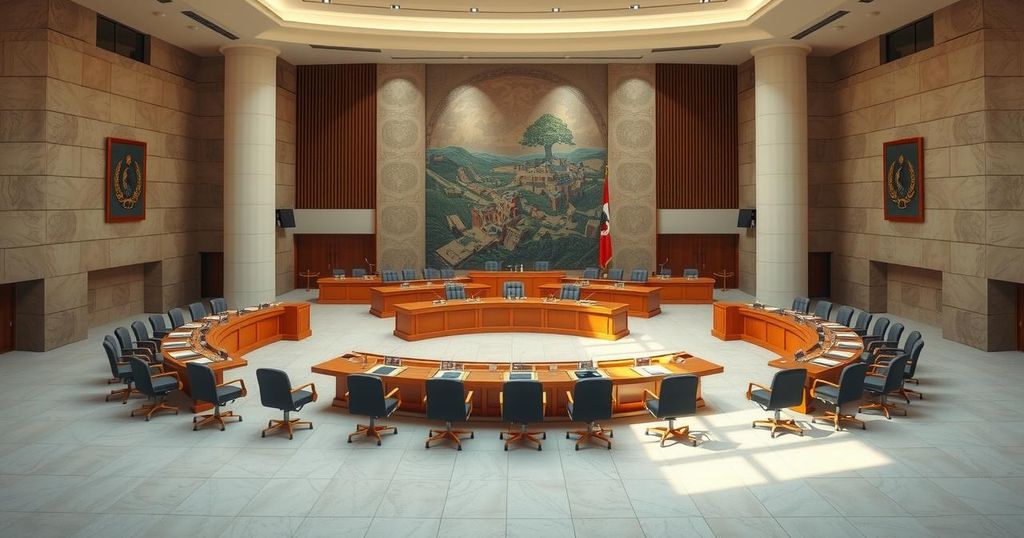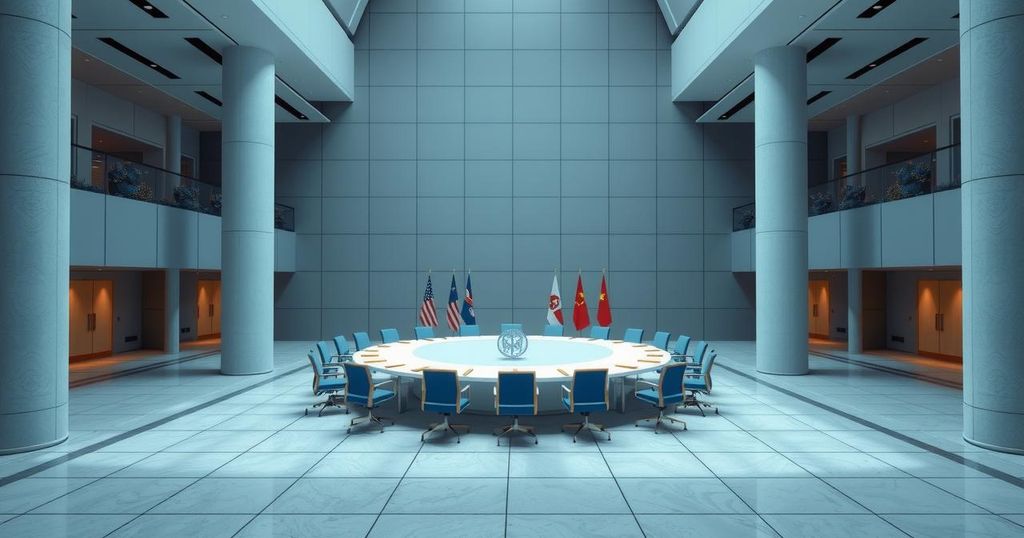Egypt and Qatar accused Israel of violating humanitarian law by stopping aid to Gaza, which Hamas condemned as a war crime. A ceasefire is at risk as negotiations over hostages and the flow of aid remain stalled. The humanitarian situation in Gaza is dire, with rising food prices and continuing international condemnation of Israel’s actions. Families of hostages plead for immediate negotiations.
Israel has faced severe criticism from Egypt and Qatar for allegedly violating humanitarian law by halting aid to Gaza. In a warning to Hamas, Israel announced a cessation of food and other supplies entering Gaza and suggested there would be repercussions if a fragile ceasefire was not extended. Mediators from Egypt and Qatar have labeled this act as the use of starvation as a weapon.
The initial ceasefire phase brought a significant influx of humanitarian aid following months of severe food shortages. However, Hamas now claims that Israel is attempting to undermine the next stage of the ceasefire. The group’s leaders have condemned Israel’s decision to stop aid as a war crime, citing the intense negotiations it took to achieve the initial truce, which began in January.
As the ceasefire has progressed, negotiations concerning the second phase, which includes the potential release of hostages by Hamas in exchange for an Israeli pullout, have yet to commence. Israeli Prime Minister Benjamin Netanyahu indicated that a new proposal from the United States would entail extending the ceasefire through Ramadan and Passover, contingent on Hamas releasing half of the hostages initially.
The International Committee of the Red Cross has highlighted the lifesaving impact of the current ceasefire but warned that any breakdown could lead to renewed despair for the residents of Gaza. United Nations officials have echoed this sentiment, advocating for the immediate restoration of humanitarian aid access to Gaza and urging all parties to refrain from escalating hostilities.
Non-governmental organizations in Israel have sought a court order to compel the government to allow aid into Gaza, stating that preventing entry violates Israel’s international obligations. The ongoing conflict has left many in Gaza reliant on aid, with previous levels of aid deliveries significantly reducing the risk of famine, according to international observers.
Reports indicate skyrocketing prices for essential goods due to the closure, with residents fearing a return to dire conditions. The humanitarian situation continues to deteriorate, and Hamas has warned of consequences for hostages if the ceasefire negotiations are further delayed. Families of the hostages have expressed their urgent need for resolution, emphasizing that time is critical.
Israel has consistently been accused of obstructing aid during the conflict, with claims that its siege on Gaza and slow response to aid requests contributed to the ongoing crisis. The International Criminal Court has suggested there are grounds to believe that Israel employed starvation as a tactic of warfare, as indicated in a previous arrest warrant issued for Prime Minister Netanyahu.
Despite these accusations, Israel maintains it has facilitated adequate aid and attributes shortages to distribution challenges posed by the United Nations. The Israeli government also accused Hamas of misappropriating aid intended for civilians. Amidst the conflict, significant civilian casualties have been reported, raising international concerns regarding humanitarian conditions in Gaza.
Israel is facing accusations from Egypt and Qatar regarding violations of humanitarian law due to its cessation of aid to Gaza. The halt in aid not only exacerbates the humanitarian crisis but is also perceived as a tactic to influence ceasefire negotiations. As calls for restoring aid intensify from international organizations, the situation remains critical, particularly for the hostages and vulnerable populations in Gaza.
Original Source: www.hindustantimes.com




